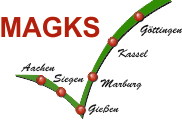The International Economic System [3HEFEK150V]
Time and Place | Lecture (Prof. Dr. Carsten Hefeker)Tuesday, 14-16 (US-D 109) and Wednesday, 10-12 (US-A 234)
Seminar (Prof. Dr. Carsten Hefeker)Friday and Saturday, July 12./13., 8-18 (US-A 234)
Tutorial on Academic Writing (Alexander Bareis)Tuesday, April 23, 16-18 (US-D 109)
|
Aim and Purpose | The purpose of this course is threefold: First, it provides an introduction to global economic history since the end of the Second World War. This will obviously be very selective but provide you with the background to explore particular regions, countries and issues in more detail. Second, it is an introduction to the formal rules and organizations that have been implemented on a global level to regulate international economic relations between countries. Third, you should learn how to prepare economic analyses of selected economic episodes, countries and institutions. This should help you to prepare for seminar theses and ultimately your Master thesis. There will be a couple of shorter written pieces and presentations and a traditional seminar at the end of the semester.
Three major texts will be used that are available in the library (some can be downloaded) but which you might also consider buying:
Additional background readings:
|
| Requirements | The course compromises participation in class, assignments to work on topics in groups or individually, and presentation of a longer paper at the end of the semester. All assignments are mandatory and will be graded. More specifically, there is a summary of a research paper (10%), a topic paper (10%), a policy paper (10%), and a seminar paper (60%). In addition, there are a shorter and a longer presentation (10%). There will be a feedback discussion after each assignment. There will also be an introductory meeting on how to write scientifically (Tuesday, 23rd April). More information is available on Unisono.
Active participation and regular attendance are expected.
|
Preliminary Outline |
I. Introduction
II. Rules and Institutions
III. The Global Economy Since 1945 1. Background
2. The Post-War Order
3. First, Second and Third World
4. Years of Crisis
5. "The End of History" and the New Globalization
IV. Current Issues and Open Questions
[Subject to changes and extensions; updates will be made available via UNISONO] |
| Literature Allen, Robert (2001) The Rise and Decline of the Soviet Economy, Canadian Journal of Economics 34, 859-881.
Bagwell, Kyle, Chad Bown, and Robert Staiger (2016) Is the WTO Passé?, Journal of Economic Literature 54, 1125-1231.
Calvin, Patricia, Giancarlo Corsetti, Maurice Obstfeld and Adam Tooze (2021), Lessons of Keynes's Economic Consequences in a Turbulent Century, CEPR Discussion Paper No. 16610.
Crowley, Meredith (2003) An Introduction to the WTO and GATT, Federal Reserve Bank of Chicago, Economic Perspectives 4.2003, 42-57.
Eichengreen, Barry and Guangtao Xia (2019) China and the SDR: Financial Liberalization Through the Back Door, Quarterly Journal of Finance 9(3), 1950007.
G20-Research Group (2008), The Group of Twenty: A History, University of Toronto (www.g20.utoronto.ca/docs/g20history.pdf).
Hertog, Steffen (2023) Locked Out of Development: Insiders and Outsiders in Arab Capitalism, Cambridge: Cambridge University Press.
Hoekman, Bernard (2019) Trade Wars and the World Trade Organization: Causes, Consequences, and Change, Asian Economic Policy Review 15, 98-114.
Horn, Sebastian, Carmen Reinhart and Christoph Trebesch (2023) China as an International Lender of Last Resort, NBER Working Paper 31105.
Irwin, Douglas, Petros Mavroidis and Alan Skyes (2008) The Genesis of the GATT, Cambridge: Cambridge University Press.
Irwin, Douglas A and Kevin H. O'Rourke (2013) Coping with Shocks and Shifts: The Multilateral Trading System in Historical Perspective, in R. Feenstra and A. Taylor, eds: Globalization in an Age of Crisis: Multilateral Economic Cooperation in the Twenty-First Century, Chicago: University of Chicago Press, 11-37.
Kenen, Peter B. (1991) Transitional Arrangements for Trade and Payments among the CMEA Countries, IMF Staff Papers 38, 235-267.
Kornai, Janos (1992) The Socialist System, Princeton: Princeton University Press.
Mattoo, Aaditya and Robert Staiger (2019) Trade Wars: What do They Mean? Why are They Happening Now? What are the Costs?, NBER Working Paper 25762.
Obstfeld, Maurice (2024) Economic Multilateralism 80 Years after Bretton Woods, CEPR Discussion Paper No. 18751.
Obstfeld, Maurice and Alan Taylor (2017) International Monetary Relations: Taking Finance Seriously, Journal of Economic Perspectives 31, 3-28. Steil, Benn (2013) The Battle of Bretton Woods: John Maynard Keynes, Harry Dexter White, and the Making of a New World Order, Princeton: Princeton University Press.
VanGrasstek, Craig (2018) The History and Future of the Wolrd Trade Organization, Geneva: WTO (also available online).
Vaubel, Roland (1986) A Public Choice Approach to International Organization, Public Choice 51, 39-57.
|


